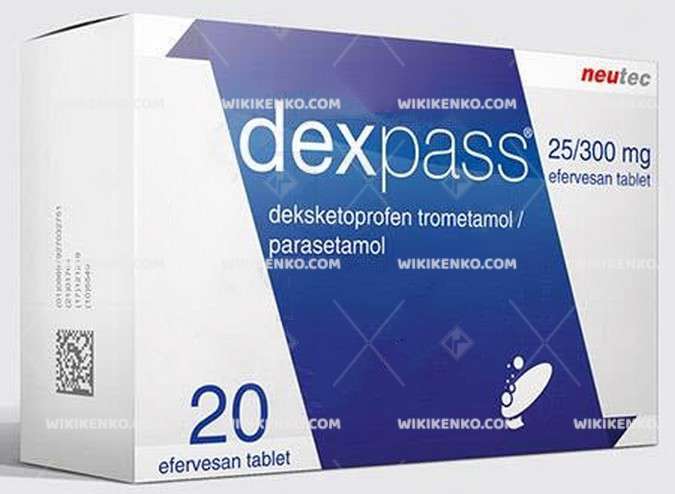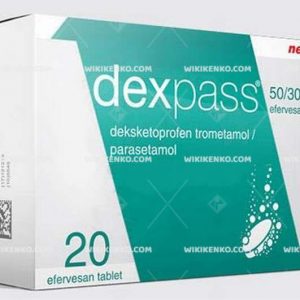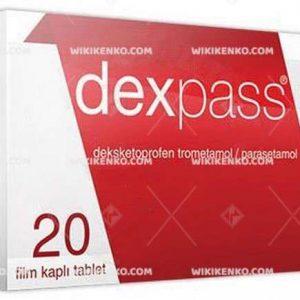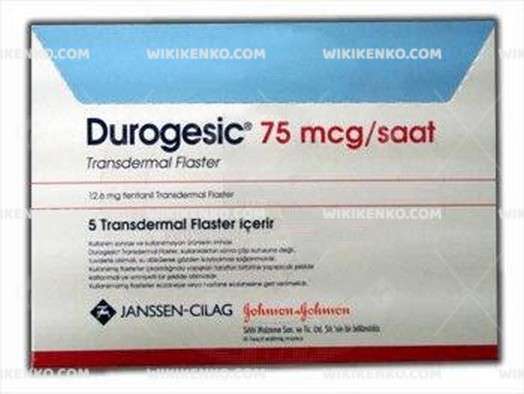Description
At its core, Dexpass Efervesan Tablet 25 Mg harnesses the synergistic potential of Dexketoprofen Trometamol and Paracetamol. Dexketoprofen Trometamol, a non-steroidal anti-inflammatory drug (NSAID), is the tromethamine salt of S-(+)-2-(3-benzoylphenyl) propionic acid. It boasts analgesic, anti-inflammatory, and antipyretic properties, making it a valuable ally against pain and inflammation. Paracetamol, on the other hand, is a renowned analgesic and antipyretic drug renowned for its efficacy in managing pain and fever.
Accessibility
For those in Turkey seeking respite from mild to moderate pain, Dexpass Efervesan Tablet 25 Mg is readily accessible. A key note: it is available exclusively with a prescription. A package comprising 30 tablets can be procured at a retail price of 72.47 TL.
Indications
Dexpass Efervesan Tablet 25 Mg finds its application in a range of conditions, providing relief from mild to moderate pain. This encompasses musculoskeletal pain, menstrual pain, dental pain, and postoperative pain. Its versatility in addressing various types of discomfort positions it as a reliable choice for those seeking relief.
Contraindications
While Dexpass Efervesan Tablet 25 Mg is a potent solution for many, it is essential to note that certain individuals should exercise caution or avoid its use. This includes those who display hypersensitivity or allergies to dexketoprofen, paracetamol, or any other components present in the formulation. Additionally, individuals with a history of asthma attacks, acute allergic rhinitis, nasal polyps, urticaria, angioedema, or wheezing after taking acetylsalicylic acid or other NSAIDs should steer clear of this medication.
Precautions
Prior to embarking on a course of Dexpass Efervesan Tablet 25 Mg, individuals should communicate any relevant medical history or existing conditions to their healthcare provider. This includes a history of stomach ulcers/bleeding, digestive disorders, inflammatory bowel disease, stomach or intestinal bleeding, or the concurrent use of other paracetamol-containing medications. Special attention is warranted for individuals with glucose-6-phosphate dehydrogenase (G6PD) deficiency, bronchial asthma, severe heart failure, moderate to severe kidney disease, or severe liver function impairment.
How Dexpass Efervesan Tablet 25 Mg Works
Dexpass Efervesan Tablet 25 Mg wields its power through two active ingredients. Dexketoprofen Trometamol, an NSAID, operates by inhibiting the production of prostaglandins—chemicals in the body responsible for pain, inflammation, and fever. Paracetamol, an analgesic and antipyretic, steps in by reducing the production of prostaglandins in the brain and spinal cord. This dual action serves to alleviate pain and reduce fever effectively.
Pregnancy and Breastfeeding
A question that often arises is whether Dexpass Efervesan Tablet 25 Mg is safe during pregnancy or breastfeeding. This is a topic that warrants a comprehensive discussion with a healthcare provider. It is crucial to weigh the potential benefits against the risks and explore suitable alternatives under these circumstances.
Conclusion
Dexpass Efervesan Tablet 25 Mg emerges as a reliable pharmaceutical solution for individuals grappling with mild to moderate pain. Its potent composition, coupled with stringent precautions, makes it a valuable asset in the realm of pain management. However, vigilance is crucial, as certain contraindications and precautions must be observed to ensure its safe and effective use. Your healthcare provider is your beacon of guidance, offering personalized advice to navigate the path to relief.















Lynne –
Am i able to purchase these online?
Medical Guidance Center –
Hello Lynne, this is WikiKenko.
Dexpass Efervesan Tablet 25 Mg is only available for purchase at pharmacies in Turkey with a prescription. It is always a good idea to consult with a healthcare provider before taking any medication. I kindly request that you complete the ‘Urgent Quotation’ form with all the necessary information. By doing so, our team will be in a position to provide you with suitable guidance throughout the purchasing process for this specific product from online pharmaceutical sources.